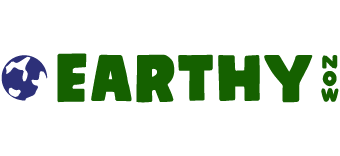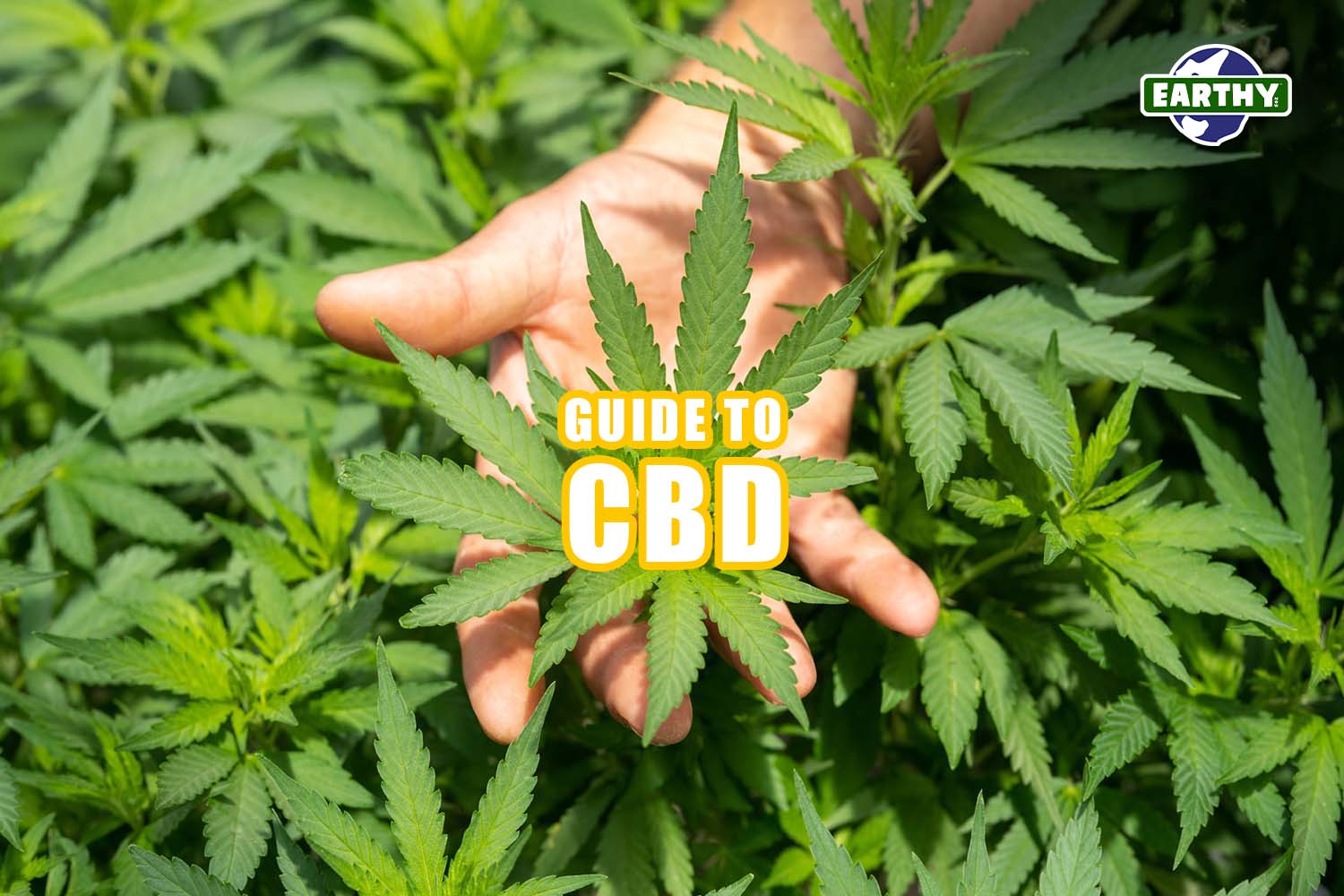Guide to CBD
People are loving CBD’s effect on how they feel, and science is recognizing the power of this humble and mighty chemical. In this complete Guide to CBD we’ll explore this popular cannabinoid in all its glory.
Cannabidiol (CBD) is a natural substance that is practically causing a revolution in self care. It’s changing how people think about high-CBD, low-THC cannabis and hemp-derived products, and cannabis itself.
What is CBD?
Cannabidiol (CBD) is one of many cannabinoids. Cannabinoids are simply “chemical compounds of cannabis that have an effect on the human body when the plant is consumed [1].”
The cannabis plant has around 540 chemical substances, and over 100 are cannabinoids [2]. CBD was discovered in 1940 and is one of hundreds of identified cannabinoids in the plant. It is often the most prevalent compound in cannabis, along with THC [3].
What’s the Difference Between CBD and THC?
CBD (cannabidiol) and THC (tetrahydrocannabinol) are both naturally-occurring cannabinoids from the cannabis plant. THC is the main psychoactive component of the plant, and the part that can make people feel “high” or intoxicated. CBD is not psychoactive and is used for effects of its own.
Have you ever wondered why cannabis affects us? When a person uses cannabinoids, they interact chemically with the human endocannabinoid system. Let’s learn more about it.
What is the endocannabinoid system?
The effects of CBD are possible because of the human endocannabinoid system (ECS). It has evolved to create and use cannabinoids in our body’s processes. The ECS is a complex cell-signaling system which is integral for maintaining health. Its receptors are found in the brain, organs, connective tissues, glands, and immune cells of the human body [4].
Scientists discovered the ECS in the 1990s and it’s still being researched. It appears to be involved in regulating physiological and cognitive processes, immune system activities, appetite, pain-sensation, and much more [5].
More clinical data will be informative as science has more opportunities to study the therapeutic benefits of active ingredients in the cannabis / hemp plant.
Cannabinoids seem to act as neurotransmitters that affect the endocannabinoid receptors’ response action throughout the human body, meaning how the receptors take in, use, and react to the cannabinoid chemistry.
Does the human body produce cannabinoids?
Yes, endocannabinoids are chemicals that are naturally produced by the human body. The prefix “endo” means “within,” ie, within the human body [6].
What plants produce cannabinoids?
Phytocannabinoids are cannabinoids from plants. “Phyto” means plant. The cannabis sativa plant and cannabis indica plant are the major known source of phytocannabinoids. Other plants do produce substances that effect the ECS as well [7].
Cannabimimetic compounds are compounds from common plants that act like cannabinoids but have different structures. Some everyday examples include coneflower (Echinacea), black pepper and rosemary. [8].
Read more about the Top 10 Common Cannabinoids.
Endocannabinoid Receptors
The human body is full of endocannabinoid receptors. Endocannabinoids bind with the receptors, initiating action by the ECS. There are two main types of endocannabinoid receptors, which are CB1 and CB2 [5].
- CB1 receptors are mostly found in the central nervous system, in major brain regions that “mediate a wide variety of high-order behavioral functions, including learning and memory, executive function decision making, sensory and motor responsiveness, and emotional reactions, as well as feeding and other homeostatic processes [9].”
- CB2 receptors are mostly found in the peripheral nervous system and are associated with the immune system [9].
Cannabinoids have different abilities to cause or inhibit reactions at the two types of receptor, and how they do so will determine the effects. Effects are also determined by the area of the body where the binding of the receptor takes place, and other factors [10].
What does “hemp-derived” mean?
Hemp-derived means made from hemp, sometimes called industrial hemp. The 2018 Farm Bill (see next section) established new federal legal definitions and rules for hemp, including that hemp and “and any part of that plant” may be used for production, sales, transport, and use. Hemp and hemp derivatives include cannabinoids like cannabidiol (CBD), cannabigerol (CBG) and cannabinol (CBN). When they come from hemp, these and other cannabinoids are federally-compliant for use in inhaleable, edible, and topical products.
What is the Farm Bill and does it make CBD legal?
CBD comes from the cannabis plant.
For many years in the United States, cannabis was illegal whether or not it contained THC. In the 2010s, the United States Congress enacted two groundbreaking pieces of legislation, called “Agricultural Acts” and commonly known as the Farm Bills.
The 2014 Farm Bill removed industrial hemp from the list of Schedule 1 substances and was the seed of hemp’s resurgence. The Bill made it federally legal and allowed long-forbidden research into hemp-derived cannabinoids to begin in earnest.
The 2018 Farm Bill expanded on this, making it clear to legal experts that all other plant materials and substances derived from legally-defined hemp are also federally-compliant [11].
The Farm Bill defines hemp as “Hemp.–The term `hemp’ means the plant Cannabis sativa L. and any part of that plant, including the seeds thereof and all derivatives, extracts, cannabinoids, isomers, acids, salts, and salts of isomers, whether growing or not, with a delta-9 tetrahydrocannabinol concentration of not more than 0.3 percent on a dry weight basis.”
The Farm Bill removed hemp from the Drug Enforcement Administration (DEA) Schedule of Controlled Substances. The DEA says “substances in this schedule have no currently accepted medical use in the United States, a lack of accepted safety for use under medical supervision, and a high potential for abuse [12]”
This is an unfortunate misperception. In the United States, a decades-long racially-motivated prohibition on cannabis [13], meant that research with the cannabis plant was and is still largely forbidden.
Now that better access to information is available, there is a rush of hemp-derived CBD products coming to market.
Does CBD have health benefits?
CBD users report improvements and there is no shortage of recommendations from wellness professionals.
There are both nonprescription CBD products and CBD prescription drugs on the market for consumers.
Are there neuroprotective properties to a CBD product? It’s possible. Let’s look at the government approved CBD medicine.
Does the US Government approve CBD as a medicine?
Yes and no. There is a U.S. Food and Drug Administration (FDA) approved version of CBD, called Epidiolex, available by medical prescription from a healthcare provider. According to the manufacturer, “Epidiolex is a prescription medicine that is used to treat seizures associated with Lennox-Gastaut syndrome, Dravet syndrome, or tuberous sclerosis complex in patients 1 year of age and older [14].”
It comes as a clear, colorless to yellow liquid containing cannabidiol at a concentration of 100 mg/mL, and includes the inactive ingredients: dehydrated alcohol, sesame seed oil, strawberry flavor, and sucralose [15]. This sounds quite different from a product with “no currently accepted medical use.” People may not associate cannabis plants with prescription drugs, but there is a clear connection if CBD oils and even medical marijuana are so prevalent.
Since the Farm Bill legalized hemp-derived CBD, we can thankfully all access the benefits of CBD.
Where is hemp-derived CBD legal?
All hemp-derived cannabinoids are federally-compliant based on the 2018 Farm Bill, so long as they contain less than .3% Delta-9 THC per dry weight. This means that CBD is not a federally-controlled substance if it is from hemp, and it contains less than .3% Delta-9 THC per dry weight.
Most states are embracing CBD within their borders, and a few others have not caught up. Those states may have contradictory regulations, or even a lack of clear CBD laws or information that is confusing.
It’s clear that the federal government allows hemp and hemp-derived CBD products coast-to-coast and will not limit their transportation across state lines. But states still have the ability to limit CBD or other cannabinoids within their borders. Additionally, there can be different levels of regulation for retail hemp operations and for wholesale hemp growers, transporters, and processors.
Operators on the wholesale side of things may be allowed to make and sell products and concentrations that are not allowed to be sold at retail. Retail stores may not be allowed to sell certain cannabinoids or products but this is not the same as banning citizens’ possession of those products.
Is CBD medical marijuana?
CBD may have medical value, but CBD is not the same as medical weed. In states with medical or recreational adult use policies, the laws that govern marijuana are usually separate from hemp programs and overseen by different agencies.
In some states, a marijuana program may not allow CBD hemp products to be sold in marijuana dispensaries, but this does not mean that CBD is illegal in that state. It may mean the products are not sellable due to their tax status or other reasons that don’t fit with the marijuana program guidelines.
What are the effects of CBD?
CBD can produce a range of effects from clear-headed alertness & energy to calm & relaxation. Will it help with issues like chronic pain, or perception of pain? It is possible, but medical studies have not proven this and there is much more to learn.
The strength of the effects on a particular person will be different depending on a few things: the dosage level, body weight, food or other substances in the system, personal body chemistry, and experience level with cannabis products.
There are 3 different varieties of CBD to be familiar with: full-spectrum, broad-spectrum, and THC-free. Let’s look at those next.
What’s the difference between full-spectrum CBD, broad-spectrum CBD, and CBD isolate?
All CBD contains substances from the cannabis plant, but the different cannabidiol extracts vary in what exact substances they contain. Those substances determine what kind, and how much, of an effect the CBD can produce.
Full-spectrum CBD contains multiple components of the plant—remember it has over 500 chemicals and over 100 phytocannabinoids. These include CBC, CBDA, CBDV, CBG, CBGA, CBN, THCV, and other minor cannabinoids. Full-spectrum CBD includes trace amounts of THC, but federally legal full-spectrum hemp-derived CBD products have less than 0.3 percent THC.
Broad-spectrum CBD does not contain THC, but It does contain other substances. These usually include CBC, CBDA, CBDV, CBG, CBN, THCV, and other minor cannabinoids.
CBD isolate is pure CBD and contains no other compounds found in cannabis, except for the CBD itself [16].
The next section will look at what happens when all the various substances from the hemp plant work together in a CBD product.
What Is the Entourage Effect?
The entourage effect refers to the components of the plant working together to boost or intensify the benefits of hemp-derived CBD [17]. In full-spectrum CBD and broad spectrum CBD, the active substances work together to enhance the effects of each individual cannabinoid, to make the effects better together.
This form of cannabinoid synergy is better known as the entourage effect. The exact chemical mechanism is not yet fully understood but with so many compounds in the full plant, it is reasonable that they are intimately connected and have evolved to work together.
How do you buy high quality CBD?
Buying high quality CBD from a trusted producer is the best way to have success with your CBD regimen. Knowledge is power. The processing standards of CBD are crucial for its quality, safety and legality. Poor manufacturing processes may lead to degradation of the compound, inaccurate potency, or even residual solvents.
You should only purchase CBD from producers who provide a certificate of analysis (COA) for each product. A COA is a document attesting to a product’s laboratory analysis for cannabinoids and in some cases adulterants, heavy metals and pesticides.
For best reliability, producers should use third party testing and be transparent about the results. Labs that are registered with the DEA and International Standards Organization (ISO) and other regulating entities are familiar with federal regulations and can be trusted to ensure federal-compliance with CBD and other hemp-derived products.
How much CBD should you take?
CBD dosages can vary depending on the person, product, and circumstances. While most products have a suggested dosage listed on each package, the strength of the effects on a particular person will be different depending on a few things: the dosage level, body weight, food or other substances in the system, personal body chemistry, and experience level with cannabis products.
Generally speaking, it is recommended that you start with the lowest dose and gradually increase it until you reach satisfactory results. Consult your healthcare provider with specific questions about using any therapeutic products.
What are the most popular CBD products?
There are so many products out there, it may depend on who and where you ask. CBD oil is definitely a top category. It’s easy to use and control the dose and doesn’t require anything additional to administer. Thanks to the Farm Bill, a product like CBD oil is not part of any national controlled substances act.
What is CBD oil?
CBD Oil is a dense viscous oil for oral consumption. It is often recommended to be used sublingually, or under the tongue. A carrier is an important component to make CBD oils easier to use. It is blended with a substance like CBD to “carry” the ingredients and affects how the oil looks and tastes. There are different carrier oils with different properties.
What Is MCT Oil?
MCT stands for medium-chain triglycerides, which are a type of fat.
MCT molecules are smaller than those in most edible fats and that makes them easier to digest and absorb in your bloodstream quickly [18]. Cannabidiol extracts sold online by Earthy Now use all natural and organic MCT derived from coconut.
Guide to CBD closing thoughts
CBD products are here to stay and innovations using CBD and other cannabinoids will continue to delight us as we expect that CBD, medically reviewed, will yield infinite health benefits. It is important to remember that laws will also continue to change as all of America learns to accept and love cannabis.
Even if the benefits of CBD products are clear, you should be aware of the laws where you live, or where you’re visiting, before purchasing or using hemp-based products containing CBD, CBG or CBN.
If you are interested in federally compliant, hemp derived Delta-8 THC, Delta-9 THC or Delta-10 THC you should read Is Delta-8 THC Legal in Your State?
Disclaimer – Information is provided for educational purposes. It does not, and is not intended to, constitute legal advice or medical advice. We attempt to be accurate and up to date but the legality of cannabinoids and the science of cannabis is evolving. The author is neither a lawyer or a legal expert, nor a doctor or medical expert. You should check with your local authorities and medical providers before buying or using any products.
References
- Cannabinoids
- Cannabis, Marijuana and Cannabinoids What You Need to Know
- Cannabidiol
- Getting High on the Endocannabinoid System
- Cannabis and the Endocannabinoid System
- What to know about endocannabinoids and the endocannabinoid system
- Phytocannabinoids beyond the Cannabis plant – do they exist?
- Cannabimimetics
- Getting High on the Endocannabinoid System
- CBG the Mother of All Cannabinoids with Broad Antibacterial Activity
- HIA Position Statement on Delta-8 and Hemp Cannabinoids
- DEA schedules
- Why is Marijuana Illegal in the US?
- Epidiolex.com
- RX list Epidiolex
- Full-Spectrum vs Broad-Spectrum CBD
- Difference Between Full-Spectrum vs Broad-Spectrum CBD
- MCT Oil Health Benefits Common Uses
Frequently Asked Questions
What is a COA?
A CoA is a document that shows a product’s laboratory analysis for cannabinoids and in some cases adulterants, heavy metals and pesticides. It can be an important tool for assessing supplements.
Will CBD products show up on a drug test?
There is a risk of failing a drug test. It depends on the type of CBD product one is using.
Drug tests for marijuana generally identify THC or its metabolites. Although tests do not screen for CBD, full spectrum CBD products contain low quantities of THC that can make a person fail a drug test. If you anticipate taking a drug test, we suggest checking with your employer or test administrator for clarity prior to taking full spectrum CBD products.
Is it legal to send CBD products through the mail?
Yes, but even though these products are federally-compliant and OK to ship, individual states may have their own regulations about purchasing or using hemp-based products, and these are subject to change. You should check your state and local rules before ordering. We ship nationwide.





